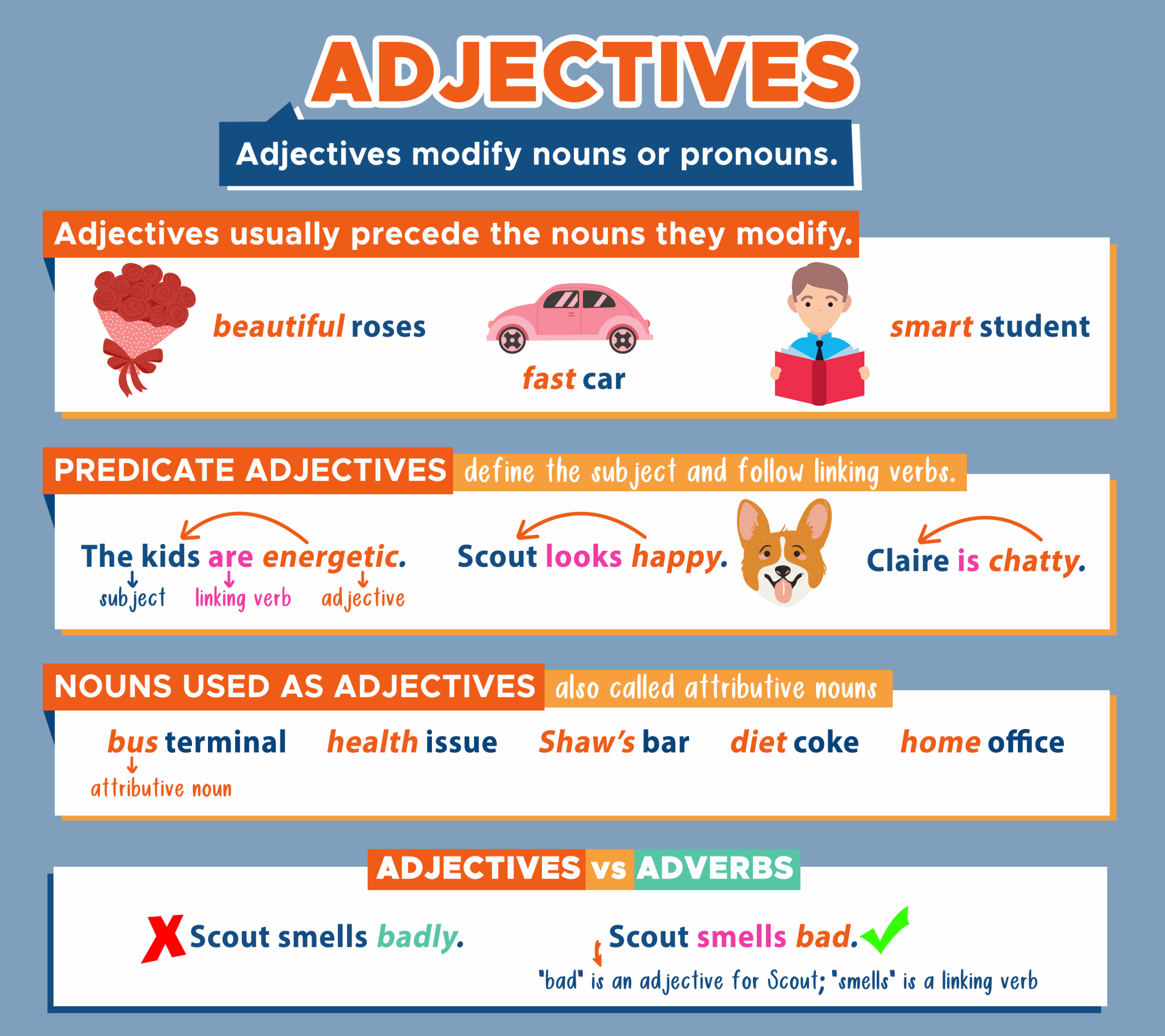Understanding the parts of speech is essential for effective communication. Nouns, verbs, adjectives, and adverbs are the building blocks of sentences, each playing a unique role in conveying meaning. By knowing the differences between these four types of words, you can improve your writing and speaking skills.
Whether you’re writing an essay, giving a presentation, or simply having a conversation, knowing how to use nouns, verbs, adjectives, and adverbs correctly can help you express yourself clearly and accurately.
Noun Verb Adjective Adverb Difference
Nouns are words that represent people, places, things, or ideas. They can be concrete (e.g., “book,” “dog”) or abstract (e.g., “love,” “freedom”). Nouns can serve as the subject or object of a sentence, and they can be singular or plural.
Verbs are action words that express what the subject of the sentence is doing. They can also show a state of being or existence. Verbs can be in different tenses (past, present, future) and forms (regular, irregular).
Adjectives are words that describe or modify nouns. They provide more information about the noun, such as its size, color, shape, or condition. Adjectives can be used to compare things (e.g., “bigger,” “prettier”) or to indicate a specific quality (e.g., “delicious,” “loud”).
Adverbs are words that modify verbs, adjectives, or other adverbs. They can indicate how, when, where, or to what extent something happens. Adverbs often end in “-ly,” but not always. They can provide more detail about the action or describe the circumstances in which it occurs.
By understanding the differences between nouns, verbs, adjectives, and adverbs, you can enhance your writing and speaking skills. Using these parts of speech correctly can help you communicate more effectively and convey your ideas with precision and clarity.
Practice identifying and using nouns, verbs, adjectives, and adverbs in your writing to improve your language skills. Pay attention to how these words function in sentences and how they contribute to the overall meaning. With practice and dedication, you can master the nuances of these essential parts of speech.
In conclusion, nouns, verbs, adjectives, and adverbs each play a unique role in language, helping us to communicate effectively and express our thoughts and ideas. By understanding the differences between these parts of speech and using them correctly, you can become a more confident and proficient communicator.
